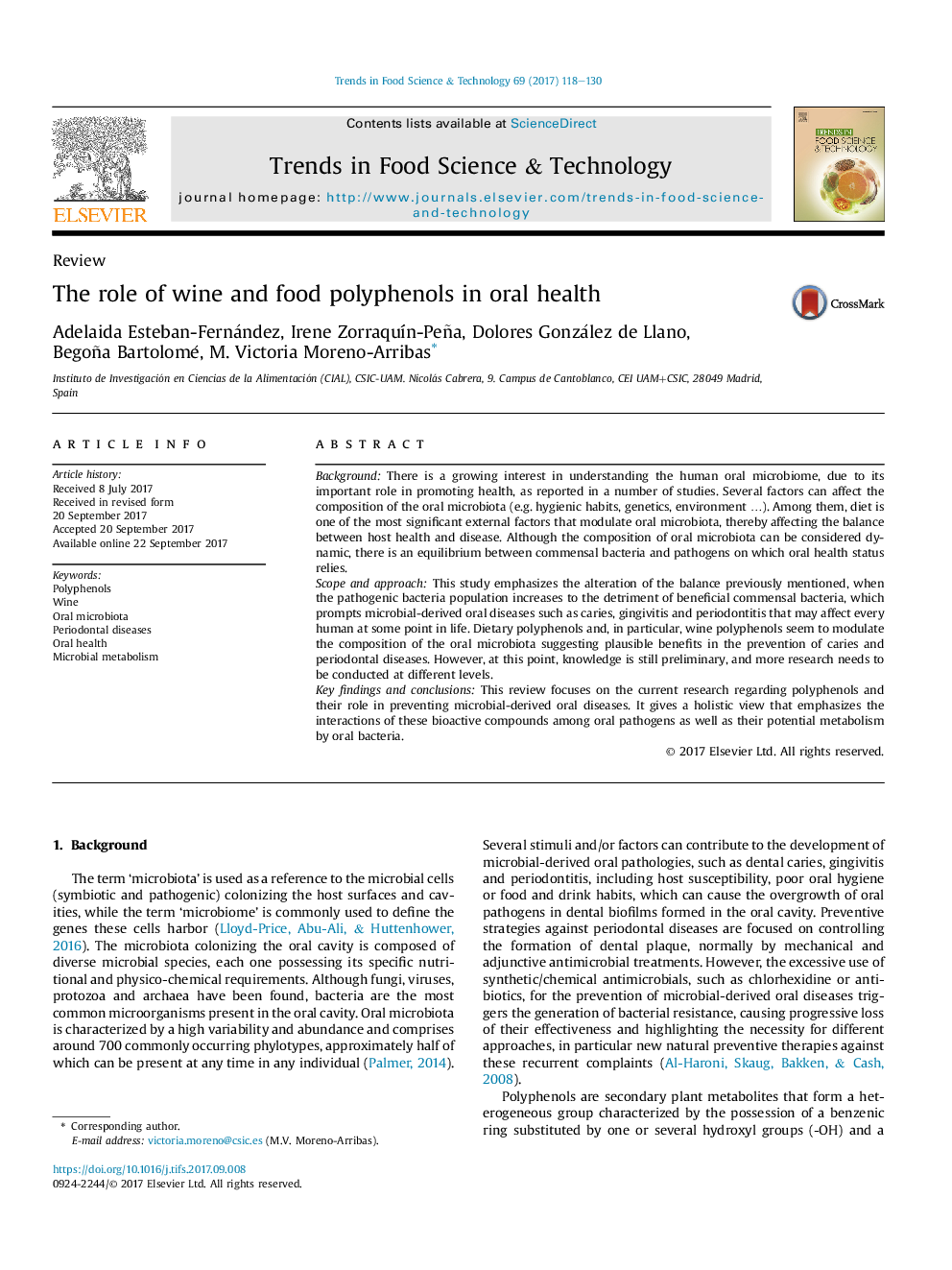| Article ID | Journal | Published Year | Pages | File Type |
|---|---|---|---|---|
| 5523691 | Trends in Food Science & Technology | 2017 | 13 Pages |
â¢Polyphenols metabolism starts in the oral cavity, but metabolic events are unknown.â¢Polyphenols are good candidates as natural therapy against oral pathogens.â¢Several mechanisms of action against cariogenic and periodontal pathogens are proven.
BackgroundThere is a growing interest in understanding the human oral microbiome, due to its important role in promoting health, as reported in a number of studies. Several factors can affect the composition of the oral microbiota (e.g. hygienic habits, genetics, environment â¦). Among them, diet is one of the most significant external factors that modulate oral microbiota, thereby affecting the balance between host health and disease. Although the composition of oral microbiota can be considered dynamic, there is an equilibrium between commensal bacteria and pathogens on which oral health status relies.Scope and approachThis study emphasizes the alteration of the balance previously mentioned, when the pathogenic bacteria population increases to the detriment of beneficial commensal bacteria, which prompts microbial-derived oral diseases such as caries, gingivitis and periodontitis that may affect every human at some point in life. Dietary polyphenols and, in particular, wine polyphenols seem to modulate the composition of the oral microbiota suggesting plausible benefits in the prevention of caries and periodontal diseases. However, at this point, knowledge is still preliminary, and more research needs to be conducted at different levels.Key findings and conclusionsThis review focuses on the current research regarding polyphenols and their role in preventing microbial-derived oral diseases. It gives a holistic view that emphasizes the interactions of these bioactive compounds among oral pathogens as well as their potential metabolism by oral bacteria.
